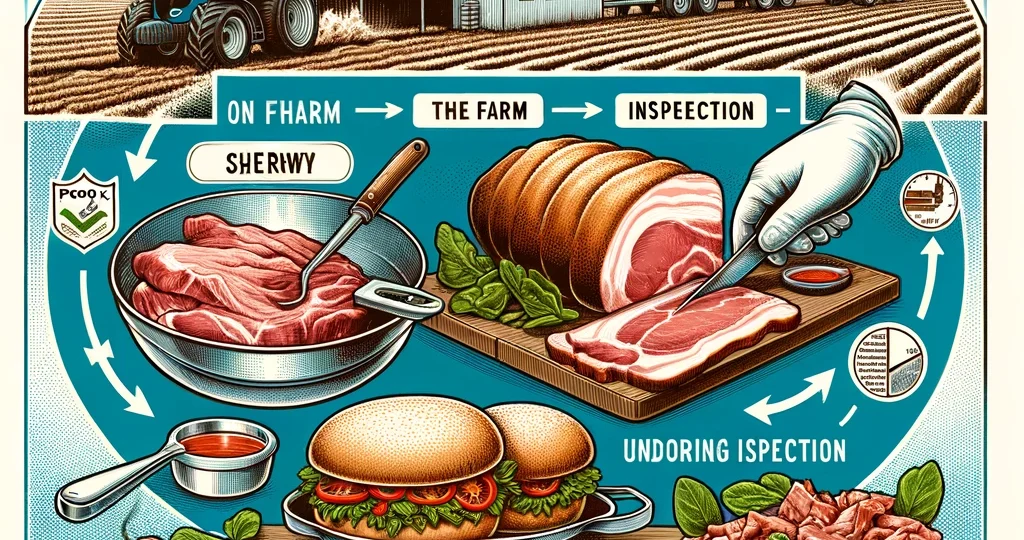
Pork shoulder, often referred to as “Boston butt” or “picnic shoulder,” stands out in the culinary world for its rich flavor and remarkable versatility. In this blog post, we dive into the details of pork shoulder, highlighting not only its culinary prowess but also the legal standards that ensure its quality and safety.
A Cut Above: Unpacking the Pork Shoulder
Hailing from the pig’s front leg and shoulder area, the pork shoulder is a treasure trove of fat marbling and connective tissue. These features are the secret behind its ability to transform through cooking into dishes that are both tender and brimming with flavor. The true beauty of pork shoulder reveals itself in slow cooking methods. Whether it’s through smoking, braising, or roasting, these techniques allow the tough fibers to break down gradually, yielding succulent, fall-apart meat that’s a delight in every bite.
Ensuring Quality and Safety: The Legal Side
In the meat industry, pork shoulder, like all pork cuts, is subject to stringent regulations. These laws play a crucial role in guaranteeing the quality and safety of the meat we consume. From ensuring the meat is free from harmful pathogens to enforcing proper processing methods, these regulations maintain high standards.
Understanding Labels: A Consumer’s Guide
Pork shoulder undergoes thorough inspection by agencies like the USDA or relevant state bodies. When it comes to labeling, terms such as ‘organic’ or ‘antibiotic-free’ carry legal definitions and regulations. As consumers, understanding these labels is vital to making informed choices that align with our dietary preferences and ethical considerations.
A Journey From Farm to Fork
Each time you savor a dish made from pork shoulder, it’s worth remembering the journey it has undergone. From the farm to your fork, this journey is not just about culinary tradition but also about adhering to legal regulations that ensure the meat’s integrity and your safety.